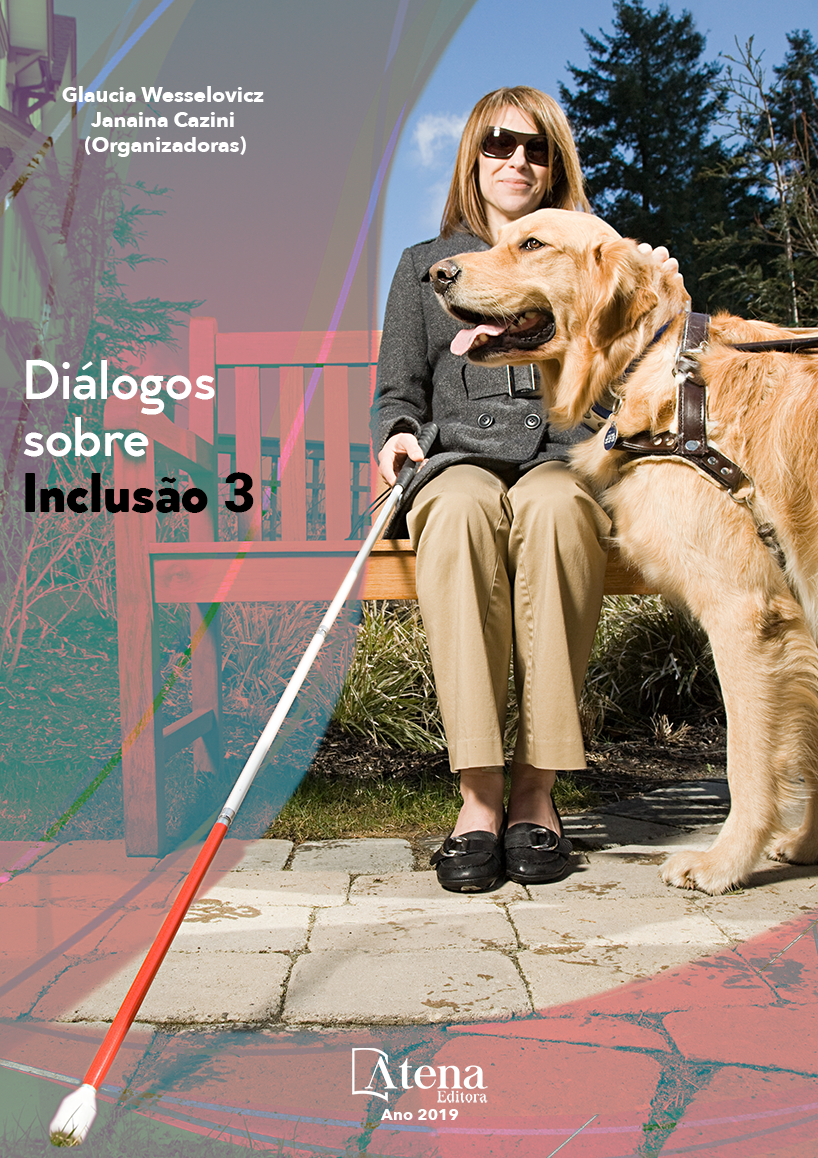
A CONTAÇÃO DE HISTÓRIA COMO INSTRUMENTO INCLUSIVO: CONTAGEO E ADAPTAÇÃO DE LIVROS INFANTIS PARA DEFICIENTES VISUAIS
Este trabalho objetiva relatar a
experiência obtida na atuação como bolsista de
extensão no projeto Contageo: Uma aventura
às cegas. O projeto utilizou a contação de
história adaptada como recurso inclusivo para
o público infantil e infanto-juvenil. Trata-se de
uma pesquisa qualitativa cujo procedimento
metodológico consistiu num relato de experiência,
o qual teve o processo de adaptação e criação
de meios inclusivos realizado em 5 etapas: A 1ª
etapa consistiu na criação de histórias com uma
personagem deficiente visual realizada pela
professora Martha Milene; a 2ª na busca de
um público alvo para realizar essa intervenção
inclusiva e literária; a 3ª etapa consistiu nas
leituras e reflexões da história selecionada; a 4ª
etapa por sua vez, tratou-se da idealização de
fantoches para a contação e a 5ª etapa tratou-se
das práticas de contação. Com isso, intervimos
indiretamente na sensibilidade das crianças a
causas correspondentes a deficiência, bem
como do meio ambiente. Portanto, a tarefa de
educar e incluir é extremamente complexa e
exige atuação de todas as partes, da família,
escola, sociedade assim como do Estado.
A CONTAÇÃO DE HISTÓRIA COMO INSTRUMENTO INCLUSIVO: CONTAGEO E ADAPTAÇÃO DE LIVROS INFANTIS PARA DEFICIENTES VISUAIS
-
DOI: 10.22533/at.ed.6441928051
-
Palavras-chave: Contageo, Contação de história, Recurso inclusivo.
-
Keywords: Contageo, Storytelling, Inclusive resource.
-
Abstract:
This work aims to report the
experience obtained acting as an extension
student in the project Contageo: An adventure
in the blind. The project utilized an adapted
storytelling as an inclusive resource for the
children and young people. It means to a
qualitative research whose methodological
procedure consisted of an experience report,
which had the process of adaptation and
creation of inclusive methods of the previously
mentioned project realized in 5 stages: The
first stage consisted in the creation of stories
with a visually impaired character realized by
Professor Martha Milene; the second in the
search of a target audience to carry out this inclusive and literary intervention; the third
stage consisted of the readings and reflections of the selected history; the fourth step
in turn, was the idealization of puppets for the storytelling and the fifth stage was the
practice of storytelling. With this, we intervene indirectly in the sensitivity of the children
to causes corresponding to the deficiency, as well as of the environment. Therefore,
the task of educating and including is extremely complex and requires action from all
parties, the family, school, society as well as the State.
-
Número de páginas: 15
- Martha Milene Fontenelle Carvalho
- Francisca Raquel Miguel de Sousa
- Rosane Santos Gueudeville
- Acreciana de Sousa Melo
- Fernanda Maria da Silva Cardeal
- Francisca Nailene Soares Vieira


